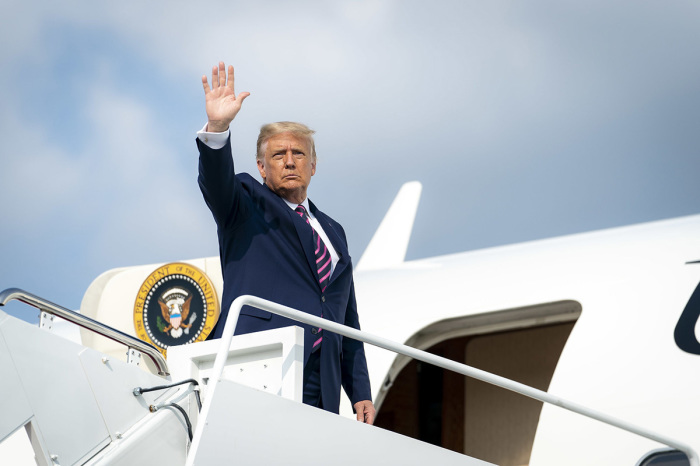4 things to know about Biden's Afghanistan withdrawal report

1. Biden blames Trump for worsening the situation in Afghanistan
Biden’s predecessor, former President Donald Trump, had also worked to withdraw troops from Afghanistan throughout his tenure in office. The document contended that Trump’s efforts to ensure the removal of U.S. troops from the country “severely constrained” the president’s “choices for how to execute a withdrawal.”
It attributed Trump’s actions over a period of two-and-a-half-years leading to the Biden administration’s assumption of office for putting the Taliban “in the strongest military position that they had been in since 2001.” The document chastised the former president for ordering “direct talks with the Taliban without consulting with our allies and partners or allowing the Afghan government at the negotiating table.”
The document highlighted the previous administration’s Doha Agreement, negotiated with the Taliban in February 2020, which would have resulted in the removal of all U.S. troops in Afghanistan by May 1, 2021. According to the Biden administration, “In return, the Taliban agreed to participate in a peace process and refrain from attacking U.S. troops and threatening major cities—but only as long as the United States remained committed to withdraw by the agreement’s deadline.”
Additionally, the administration painted a picture of chaos and inconsistency in the waning days of the Trump administration: “On September 28, 2021, Chairman of the Joint Chiefs [General Mark] Milley testified that, on November 11, he had received an unclassified signed order directing the U.S. military to withdraw all forces from Afghanistan no later than January 15, 2021. One week later, that order was rescinded and replaced with one to draw down to 2,500 troops by the same date.”
The Biden administration slammed the Trump administration for providing “no plans for how to conduct the final withdrawal or to evacuate Americans and Afghan allies.” The document stated that “there were no such plans in place when President Biden came into office, even with the agreed upon full withdrawal just over three months away.”
“This experience underscores the critical importance of detailed and effective transition coordination, especially when it comes to complex military operations for which decisions and execution pass from one administration to the next, and consequential deals struck late in the outgoing administration whose implementation will fall largely to the incoming administration.”
While one section, in particular, was devoted to criticizing the Trump administration’s actions, references to the previous administration loomed large throughout the entire document. For example, a section stressing the need for “rebuilding long-term capacity” asserted that “the Trump Administration had hollowed out much of the career workforce, including at senior levels, at a moment when more resources were needed.”
Ryan Foley is a reporter for The Christian Post. He can be reached at: [email protected]



























